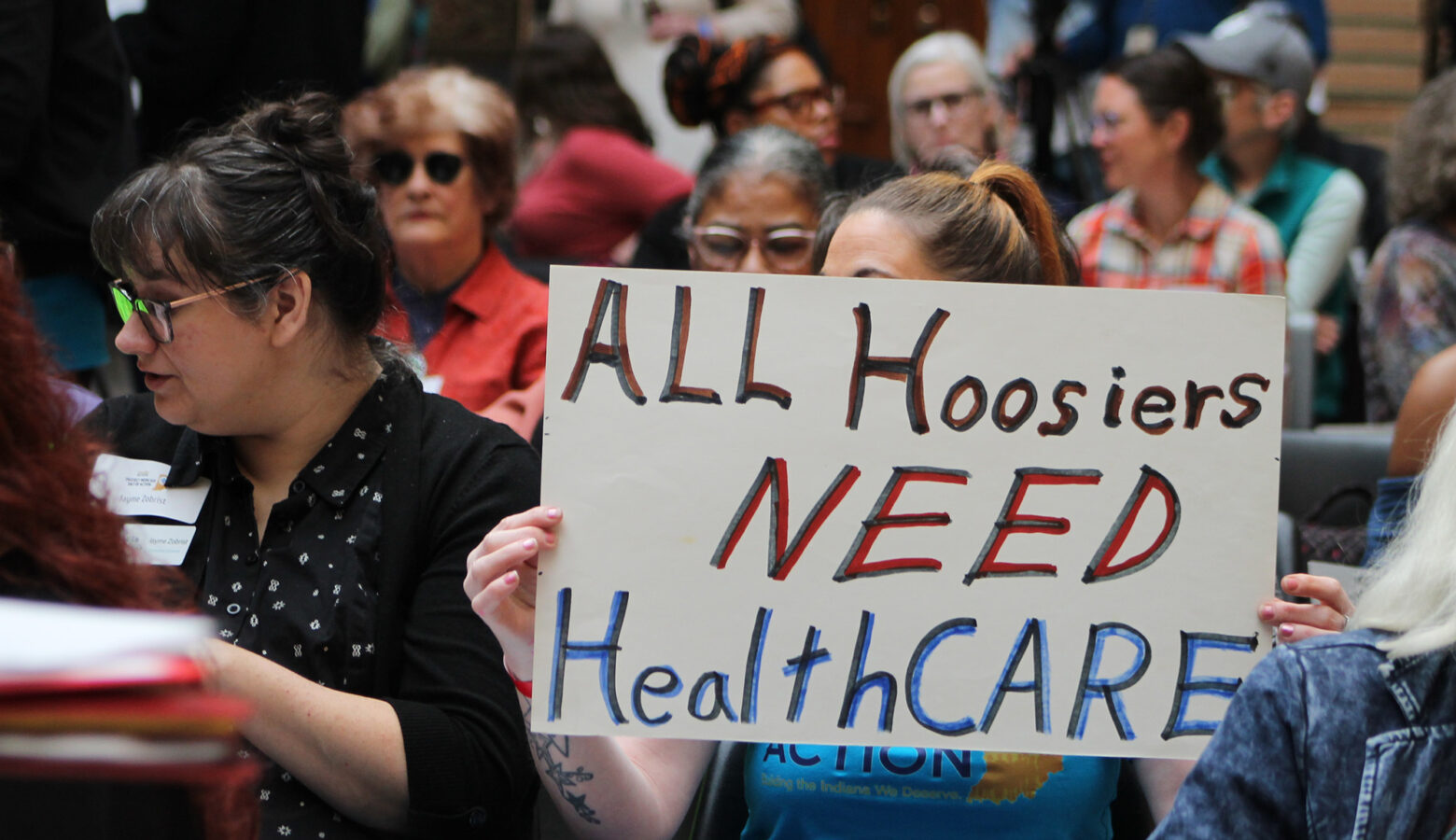House passes HIP work requirements, Medicaid fiscal reforms despite concerns about loss of coverage

House lawmakers approved a bill that reintroduces previously halted work reporting requirements to Indiana’s Medicaid expansion program. Senate Bill 2 also increases how often certain eligibility requirements are checked by the state.
The reforms are among many meant to address the rising cost of Medicaid in the state budget. Rep. Brad Barrett (R-Richmond) said the goal is to direct services towards those who need them most.
“Senate Bill 2 is really an effort to maintain the sustainability of Indiana’s Medicaid expansion,” Barrett said.
Following the 2023 Medicaid forecasting error, the Family and Social Services Administration began releasing monthly Medicaid financial reports with commentary to explain what the reports meant. Those reports said that, even when the Medicaid expansion population — which includes the Healthy Indiana Plan, or HIP — is higher than expected, it does not “impact the state’s general fund.”
That’s because the HIP program isn’t funded by the state’s general fund. Federal funds cover 90 percent of HIP — which leaves the state responsible for 10 percent of the program. But Indiana actually doesn’t cover that cost.
Indiana hospitals pay fees, known as the Hospital Assessment Fee or HAF program, that cover 90 percent of the state’s portion. FSSA said the rest is covered by cigarette taxes. No part of the program — including the administrative costs — is funded by anything other than the HAF and cigarette taxes.
Lawmakers still said they were concerned the program could expand beyond what the Hospital Assessment Fee program and cigarette taxes are able to handle.
But those concerns haven’t played out. For example, in May 2024, actual HIP enrollment was more than 95,000 people higher than expected. But FSSA’s monthly report commentary still said that had no effect on the budget.
Lawmakers said they could reallocate funds used for the HIP program to other programs, implying they could shift the HAF to other Medicaid populations. But, the bill’s fiscal note reports that Indiana will collect less in hospital fees as a result of fewer people being enrolled in HIP.
READ MORE: Experts, advocates challenge misinformation from lawmakers on Medicaid, HIP overhaul bill
Join the conversation and sign up for our weekly text group: the Indiana Two-Way. Your comments and questions help us find the answers you need on statewide issues, including our project Civically, Indiana and our 2025 bill tracker.
Medicaid experts and advocates said more eligibility checks and work reporting requirements will result in people losing coverage even if they meet the requirements for the program. Some lawmakers argue the loss of coverage could have a negative fiscal impact on the state.
Rep. Victoria Garcia Wilburn (D-Fishers) says the loss of Medicaid coverage will increase costs for the state through repetitive emergency room visits or interactions with the judicial or behavioral health system.
“It has the potential to harm and lose billions of dollars in federal match money over the next two years, removing billions of dollars from our state’s economy that support rural health clinics, mental health providers and tens of thousands of jobs in the health care field,” Garcia Wilburn said.
Other lawmakers raised concerns about how SB 2 could limit access to health care and Medicaid coverage.
Several lawmakers and more than 150 Medicaid advocates called for the House to kill SB 2. The House did remove or soften some of the language of the bill compared to the version it received from the Senate.
The House committees removed the 500,000 person enrollment cap in favor of a fiscal- or budget-based cap. Lawmakers also loosened the language codifying the Medicaid advertising and marketing ban set by Gov. Mike Braun administration back in January.
The original language was considered too broad by advocates and other stakeholders. It prohibited advertising and marketing of the Medicaid program from state agencies; people with a contract with the Family and Social Services Administration under the Medicaid program; health providers; law firms and “any other person or entity.”
The committee softened the language to no longer apply to health providers, law firms and the broadest category of “any other person or entity.” This means that state agencies and people with a contract with FSSA under Medicaid are the only groups not able to advertise “except to indicate their participation in the program.”
Some lawmakers and advocates raised concerns that the bill still goes too far and will result in people unfairly losing coverage.
The bill now goes back to the Senate, which can send it to the governor or take it to conference committee for more work.
Abigail is our health reporter. Contact them at aruhman@wboi.org.

